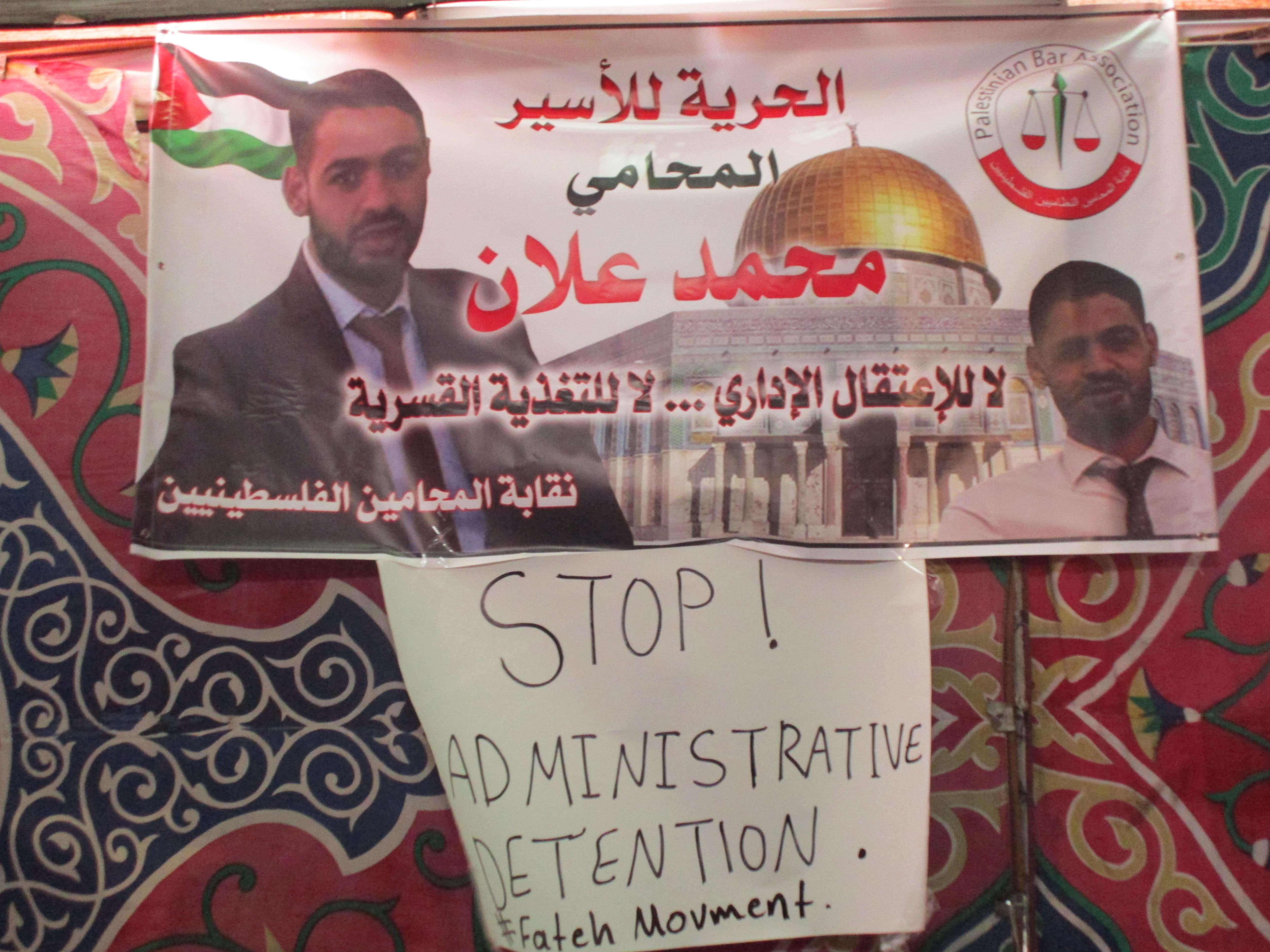Tag: #palhunger
-
Palestinian lawyers went on hunger strike in solidarity with Mohammed Allan and to protest against administrative detention
20th August 2015 | International Solidarity Movement, al-Khalil Team |Hebron, Occupied Palestine Last Tuesday Palestinian lawyers went on a hunger strike. Hatem Shahin, vice-president of the Palestinian Bar Association for lawyers, explains why thirteen of the Association’s members decided to take this radical step: “The main goals are to break the isolation of the Palestinian prisoners…

